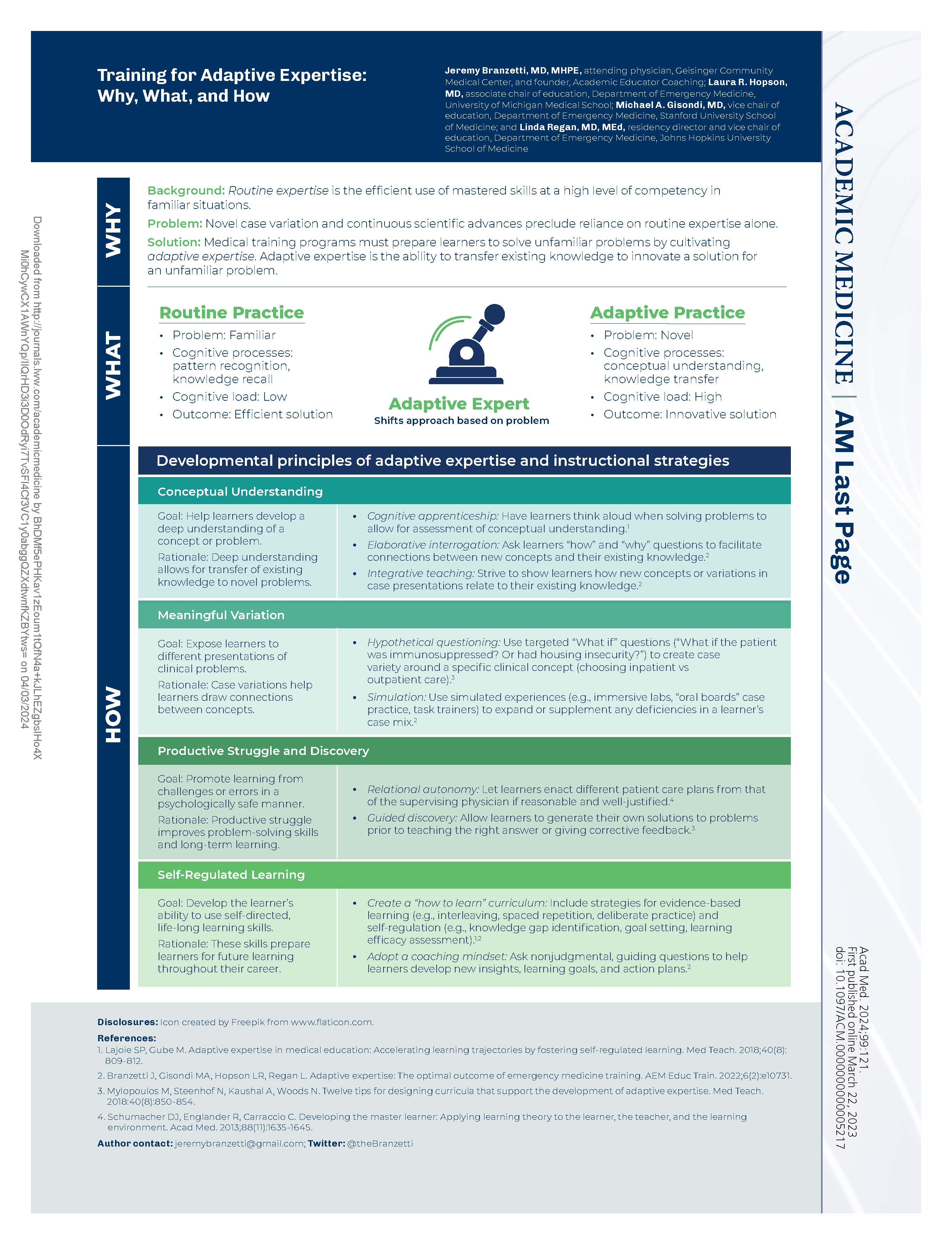Contributor: Dr. Cindy Donaldson
Summary:
It has been proposed that “adaptive expertise” be incorporated as a key competency within the Medical Expert role (1). This one pager info-graphic (2) provides practical strategies for helping learners evolve from managing routine encounters to managing more unique or complex clinical situations. Preceptors can model how they think through a particular case or problem by talking through their own thought processes with learners. In turn learners can be encouraged to “think out loud”, which helps them organize what they are thinking, providing insight to their conceptual understanding. Hypothetical questioning promotes flexible thinking, and supports learners’ ability to adapt to varied contexts. Encouraging learners to follow a reasonable, thoughtful care plan, even if it differs from our own, provides autonomy that often leads to greater understanding in the long run.
Take Away Tidbits:
- Think out loud
- Hypothetical questioning
- Autonomy and self-guided discovery
- Adopt a coaching mindset
References:
1-Cupido N, Fowler N, Sonnenberg LK, Karwowska A, Richardson D, Snell L, Thoma B, Mylopoulos M. Adaptive Expertise in CanMEDS 2025. Can Med Educ J. 2023 Mar 21;14(1):18-21. doi: 10.36834/cmej.75445. PMID: 36998497; PMCID: PMC10042796.
2-Branzetti, Jeremy MD, MHPE; Hopson, Laura R. MD; Gisondi, Michael A. MD; Regan, Linda MD, MEd. Training for Adaptive Expertise: Why, What, and How. Academic Medicine 99(1):p 121, January 2024. | DOI: 10.1097/ACM.0000000000005217
